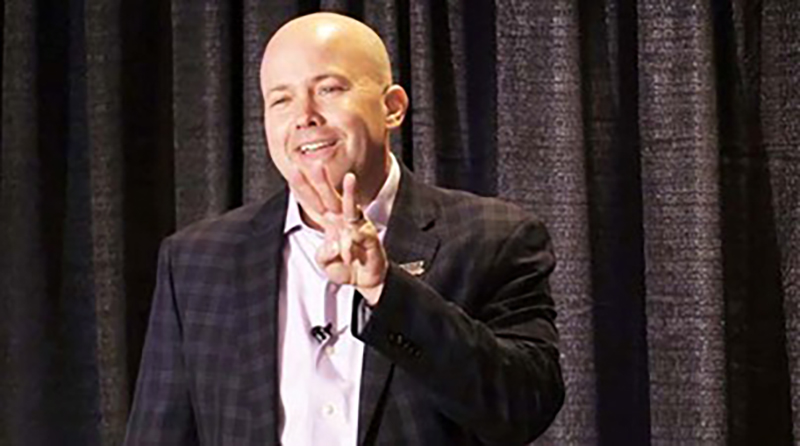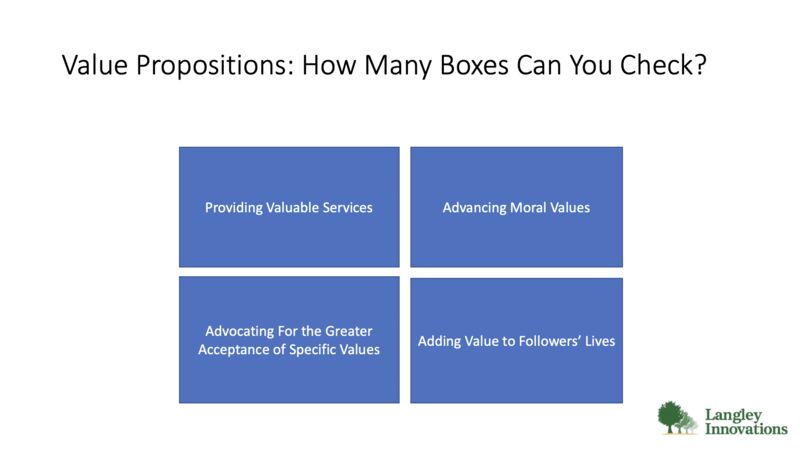
NANOE Says, “Strong CEOs Build Strong Boards”
November 27, 2022
Jim Eskin Provides Donors Sound Giving Advice
November 27, 2022Jim Langley Asks, “Are Our Fundraising Models Obsolete?”

Jim Langley Asks, “Are Our Fundraising Models Obsolete?” is a nonprofit veteran who may be posing the only question that really matters. Here’s what Langley has to share:
More and more organizations are struggling to fill fundraising positions, according to the Chronicle of Philanthropy. The article asserts, “They’re leaving money on the table because they don’t have the people they need to ask for all the gifts they could bring in.” I’m not so sure. Very few organizations have more prospects than they can keep up with; the vast majority are losing donors at a worrying rate. And they’re spending more time chasing prospects than husbanding donors is why that problem is widening. Notwithstanding the shortages, job postings for fundraisers remain largely unchanged. There are long enumerations of duties but little about flexible working conditions, much less support systems and, heaven forbid, an institutional commitment to philanthropic partnership building not just gift getting.
Many will deal with this issue by focusing on inducements rather than rethinking the obsolete model of fundraising itself. They will have the same rate of success as they had in stemming the rate of turnover for fundraisers. Let’s put this in perspective. The fundraising model is an artifact of very different times when trust in institutions was high, when more people felt organizations were representative of their interests and values, and were an integral, accountable part of the communities they cared about. Fundraising was the means of harvesting an abundance of trust, appreciation, and affinity in pursuit of an even greater good. But we humans take things for granted, don’t we? The more we raised, the more we spent on harvesters and harvesting tools while becoming less and less attentive to the root systems of philanthropy. The best fundraisers tried to compensate and, in many cases, succeeded by listening, repairing relationships and restoring trust in the organizations they represented. But nothing impedes like success. The more leaders absented themselves from the field, the more they came to expect fundraisers to succeed despite the increasing erosion.
Jim Langley Asks, “Are Our Fundraising Models Obsolete?”
We have to start by revisiting the philanthropic value proposition.
Fundraisers were and, in many instances, still are expected to reap more than their organizations have sown. So we won’t reverse the shortage of fundraisers, or the decline in fundraising skills, or the turnover rate of fundraisers until we address the underlying issues and commit to replenishing our depleted civic soil and redeveloping the root systems of philanthropy. We know how to begin by tracing back to where it first began – in conversation, in community, in the sharing of hopes and concerns, and in the resolution to act on what we held most dear and most in common. Much too much has been delegated to the fundraiser. And much too much responsibility for sustaining organization relevance by listening and responding has been relegated by too many boards and too many nonprofit leaders.
Donors make more personal and practical calculations in their giving decisions than most organizational and advancement leaders recognize. Alumni most likely to give to their alma maters, for instance, are those who believe that the lasting value of their education greatly outweighed the cost – no matter how much they paid. Those that believe the cost outweighed the value are highly unlikely to give, no matter how little they paid. This explains why some alumni continue to give generously to distinguished deep-pocketed schools, and some refuse to subsidize needy ones.
Philanthropy correlates primarily with four different value propositions.
Providing valuable services: This includes directly – as to students, patients, patrons of cultural institutions, beneficiaries of social services, and others – and indirectly to the general betterment of community and society
Advancing moral, ethical or civic values: This includes faith-based institutions, military academies or any organization which so articulates them
Advocating for the greater acceptance of specific values: This includes causes advocating greater social justice for marginalized populations, DEI, gender and sexuality choice, as well a greater awareness of looming consequential issues like climate change
Adding value to followers’ lives: This is achieved by creating communities of shared purpose in which adherents take great delight or find comfort by simply being among supportive kindred spirits or pursuing shared passions; some recent studies show that many people are more motivated to give because of the direct personal benefits of being in community than by the tenets or missions of the organizations that have gathered them together, including churches.
The most successful fundraising organizations not only offer all or most of these value propositions, they show how they can be advanced in measurable ways through specific programs and initiatives. They know that a few will give to the institution to advance all of them, while most will be more animated by one of them. This is how great coalitions are formed, by providing many portals of purpose through which different constituents can enter and find their home, yet still be under one strategic roof.
Sustained fundraising success is about creating the conditions that allow philanthropy to flower naturally. The smartest organizational leaders learn what their value propositions are by asking their adherents what matters most to them and what has stood the test of time. That testimony, when respected and adopted as an institutional ethic, forms a powerful organic brand and a compelling, multi-dimensional value proposition.
About the Author:
 James M. Langley, President of Langley Innovations, has pioneered a number of practices that have been emulated by hundreds of institutions of higher learning. The knowledge he acquired from conceiving and conducting three path-breaking campaigns at three major institutions and the insight he gleaned from decades of research on donor behavior has been shared in five books, dozens of articles, hundreds of blog posts and scores of seminars, workshops and speeches. As a result, his expertise and insight, particularly on how institutions can adapt best to changing and unchanging philanthropic realities, is highly sought after by Canadian and U.S. institutions and professional advancement organizations.
James M. Langley, President of Langley Innovations, has pioneered a number of practices that have been emulated by hundreds of institutions of higher learning. The knowledge he acquired from conceiving and conducting three path-breaking campaigns at three major institutions and the insight he gleaned from decades of research on donor behavior has been shared in five books, dozens of articles, hundreds of blog posts and scores of seminars, workshops and speeches. As a result, his expertise and insight, particularly on how institutions can adapt best to changing and unchanging philanthropic realities, is highly sought after by Canadian and U.S. institutions and professional advancement organizations.
His most recent book, The Future of Fundraising: Adapting to New Philanthropic Realities, was published by Academic Impressions in 2020. It builds on the vast experience and extensive research imparted in his four previous books, Comprehensive Campaigns: A Guide for Presidents and Boards, Fundraising for Boards: A Guide, Fundraising for Deans: A Guide, and Fundraising for Presidents: A Guide and Fundraising for Presidents: A Guide. He has also written chapters in Advancing Higher Education: New Strategies for Fundraising, Philanthropy and Engagement and How to Recruit and Retain Good Staff and published numerous articles including his most recent, “Cultivating a Culture of Philanthropy” in Trusteeship, the magazine produced by the Association of Governing Boards. After 30 years in higher education, he founded Langley Innovations. In its first eleven years, Langley Innovations has served over 130 clients, providing a wide variety of strategic services.
Langley Innovations
1805 Greenspring Place, Unit 103
Frederick, MD 21702
Phone: (202) 570-9232
Email: [email protected]
Website: https://LangleyInnovations.com
Jim Langley Asks, “Are Our Fundraising Models Obsolete?” was first posted at NANOE
For more articles like Jim Langley Asks, “Are Our Fundraising Models Obsolete?” VISIT HERE
The post Jim Langley Asks, “Are Our Fundraising Models Obsolete?” appeared first on NANOE | Charity’s Official Website.
